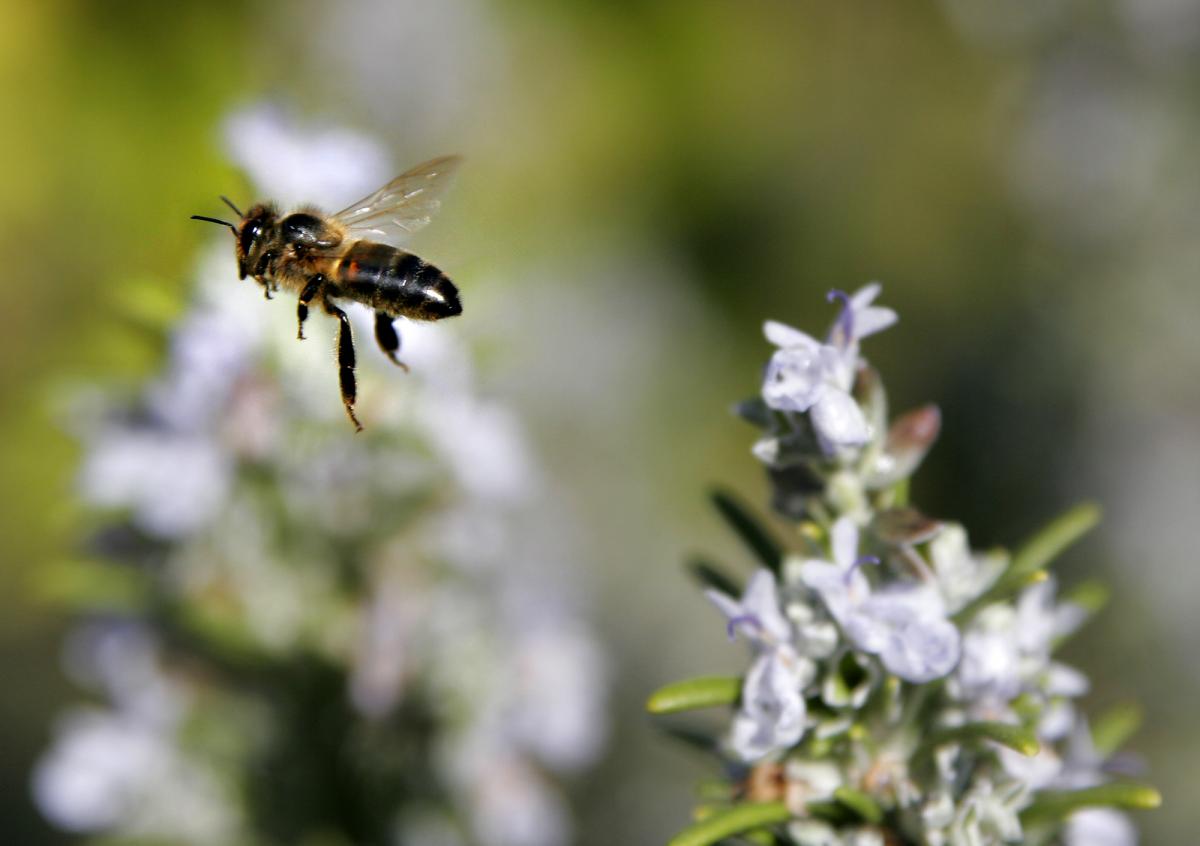Y: My flowers attracted a lot of bees this year.
D: Ugh. Bees make me nervous. When I see one, I worry about stumbling upon a whole colony of them nearby.
Y: You do know, don't you, Don, that most bee species are solitary?
D: Solitary?
Y: Unlike social bees like the bumblebee, solitary bees don't have queens or worker bees, and they don't reside together in colonies. In solitary species, every female lays eggs, and in most solitary species, she does so in a nest all her own.
D: So you mean no other bees help her out?
Y: Nope. In some species, females may share nests, but even in those cases, each female takes care of her own eggs herself. In the case of solitary bees that build their nests in soil, thousands of females may nest in the same area, giving them the appearance of being social. However, they nest in the same area only because they're picky about their nesting sites, so if one particular area is a choice site, they'll all nest there regardless of how crowded it already is.
D: Are solitary bees pollen gatherers?
Y: Yes. They differ from many social species in that most of them gather pollen from one or just a few species of plants. There are some plant species that are pollinated by a very select number of bee species, so in cases where those bees are dying off, the plants' survival is in jeopardy.
D: Interesting.
Y: You might be interested to know too that not only will solitary bees not swarm after you, but they're often stingless.
D: Now that's my kind of bee.









